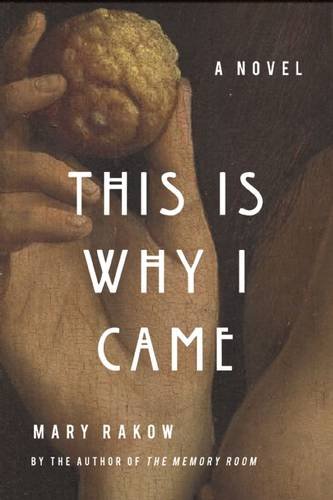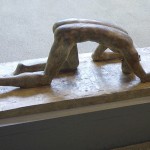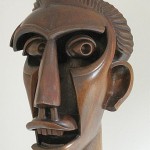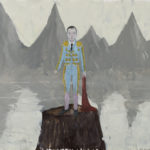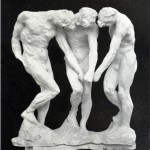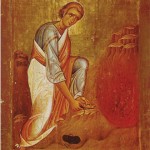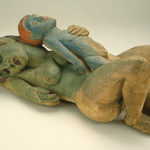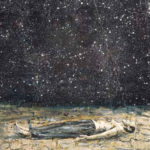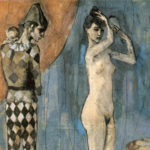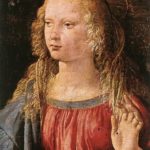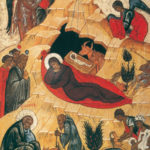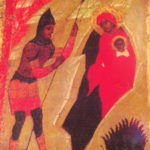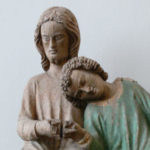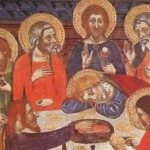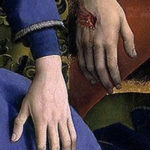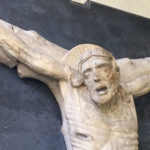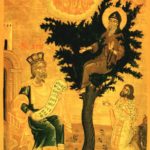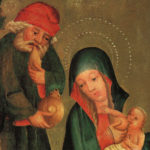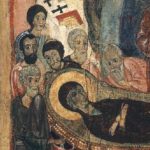God said to Moses, “My people love me then they don’t. They come to me then they forsake me. I want to bind them to myself. I want to make my presence permanent.”
Moses hearing fear in the voice of God asked, “What would you have me do?”, “Listen to me and tell my people everything you hear. For you, Moses, are the Great Rememberer.”
God began, his voice robust and determined and Moses sat back to memorize each word as it came from his mouth. “I am the Lord thy God, who brought you out of the land of Egypt, out of the house of bondage….Thou shalt have no other gods before me…. Thou shalt not make unto thee any graven image….Thou shalt not take the name of the Lord thy God in vain….”
And Moses went down the mountain and told the people the words God had spoken and they said in one voice, “This we will do.”
Then God called Moses to the mountain a second time and the energy of God was greater than the first and he spoke faster saying, “If you buy an Hebrew servant, six years he shall serve, and in the seventh year he shall go out free for nothing.” And then, “If the servant came in by himself, he shall go out by himself; it he were married, then his wife shall go out with him.”
The commands were more detailed causing Moses to work harder remembering them. “And if the servant shall plainly say, I love my master, my wife, and my children, I will not go out free, then his master shall bring him unto the judges….And if a man sell his daughter to be a maidservant, she shall not go out as the menservants do. If she please not her master, who hath betrothed her to himself, then shall he let her be redeemed….”
God spoke still faster, “And if he have betrothed her unto his son, he shall deal with her after the manner of daughters….” But the cadence, the rhythmic repetition and steady hopefulness in God’s voice took Moses away from him and his mountain and into the cave of memory, black and damp and gently rocking where he slept. Then a blast of light, that is what he remembers, something long and bright orange poking him, the basket rocking wildly, a white feathered head, two yellow eyes with black eyes then gone.
“… If he take him another wife,” Moses came back, “her food, her raiment and her duty of marriage shall he not diminish. And if he do not these three unto her, then shall she go out free without money.”
Under the words Moses heard, “Remember this. Remember me, Moses,” and he had compassion for God and tried harder, with all of his strength, to remember each word, harnessing himself to them.
“And if a man smite the eye of his servant…if an ox gore a man or a woman…if a man shall open a pit and not cover it…if a man shall cause a field or vineyard to be eaten by his beast…if a fire break out and catch in thorns so that the stacks of corn be consumed…If a man deliver unto his neighbor an ass and it die…If a man entice a maid that is not betrothed….”
But Moses dozed off again, hearing only, “and…and…and…and….”
The egret, the enormous beak, the rocking of his back against the blanket, the inside of the basket, that it smelled of reeds.
Inside the memory of the basket, another memory lay and Moses turned away from God’s voice and into himself to find it. Further back. At the beginning.
Breath came down on the crown of his head. Skin against skin, a steady rise and fall, being held from behind and below. His mother’s skin, that it smelled of moss.
And Moses could see why God wanted to be bound to his people forever, as he was bound, in memory, to her.
Hermann A. Scherer’s “Sleeping Woman with Boy,” 1926 by THE ALTERPENGUIN SUPERDORK is licensed under CC BY 2.0 / desaturated from original

